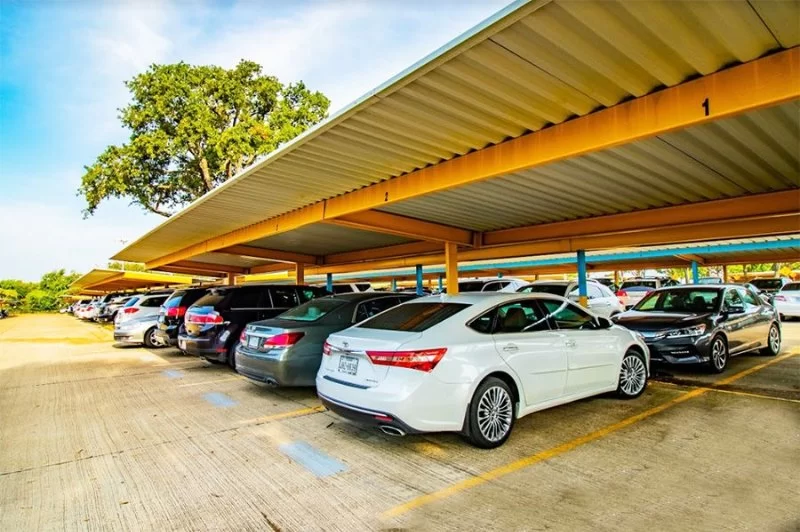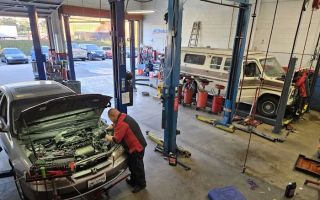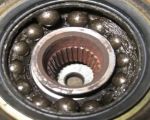How to Prepare Your Car for Long-Term Parking
Whether you're going on an extended vacation, leaving town for work, or simply need to park your car for an extended period, preparing your vehicle for long-term parking is essential. Without the proper precautions, your car can suffer from a variety of issues, ranging from battery drain to tire damage. In this guide, we'll walk you through the necessary steps to prepare your car for long-term parking, ensuring that it remains in excellent condition and is ready for use when you return.

Pick Your Part - Help Yourself
1232 Blinn Ave, Wilmington, CA 90744, USA
1. Find the Right Parking Spot
The first step in preparing your car for long-term parking is choosing the right parking spot. Whether you're parking at an airport, a garage, or a driveway, the location of your vehicle can significantly impact its condition over time. Ideally, you want a spot that’s covered, safe, and far from extreme weather conditions. If possible, opt for a shaded area to protect the paint and prevent the interior from becoming excessively hot. If you can’t find a covered spot, consider using a car cover to shield the car from the sun and elements.

Pick Your Part - Greer
13054 E Wade Hampton Blvd, Greer, SC 29651, USA
2. Clean Your Car Inside and Out
Before you park your car for a long period, it's important to clean it thoroughly. Dirt, grime, and even bird droppings can damage your car’s paint and interior. Here’s what you should do:
- Exterior Cleaning: Wash the exterior of your car to remove any dirt, dust, or debris. Waxing the car afterward adds an extra layer of protection to the paint.
- Interior Cleaning: Vacuum the seats and floors, and clean the dashboard and other surfaces. Leaving food particles or moisture inside the car can attract pests or cause mold to develop.
3. Check and Top Off Fluids
Before parking your car for an extended period, make sure all essential fluids are topped off. This includes engine oil, brake fluid, coolant, and windshield wiper fluid. If any of these fluids are low or need changing, now is the time to take care of it. Properly maintained fluids help prevent corrosion, keep your engine running smoothly, and ensure your car is ready to go when you return.
4. Inflate the Tires
Tires can lose pressure over time, especially when the car is sitting unused. Before parking your car for an extended period, ensure that the tires are inflated to the correct pressure. If you plan to park for several months, consider over-inflating the tires slightly to prevent them from becoming flat-spotted. If you're storing your car for even longer, you might also want to consider using a car jack to take the weight off the tires entirely.
5. Disconnect the Battery
If your car will be parked for an extended period, there’s a good chance that the battery will drain. To prevent this, it’s a good idea to disconnect the battery. This will prevent the battery from slowly discharging while the car is idle. If you're not comfortable disconnecting the battery yourself, you can also use a battery maintainer or trickle charger to keep the battery charged while the car is parked.
6. Protect Your Car from Pests
Long-term parking can sometimes invite unwanted pests, especially if you're parking in a less-than-ideal location. Mice and insects can nest in your car and cause damage to the interior. To keep pests at bay, consider placing a few rodent repellents or mothballs around the interior of your vehicle. Sealing up any gaps around the windows and doors will also help keep pests from sneaking inside.
7. Use a Car Cover
If you are leaving your car exposed to the elements, using a high-quality car cover is essential for protecting it from dirt, debris, and UV rays. A car cover helps keep your vehicle’s paint and interior in great condition, and it can also prevent your car from becoming a breeding ground for dust and moisture. Be sure to choose a breathable car cover that allows air circulation while still protecting your vehicle.
8. Keep the Fuel Tank Full
Before parking your car for a long time, fill up the fuel tank. A full tank helps prevent moisture from building up inside the fuel tank, which can lead to rust. Additionally, a full tank ensures that your vehicle will be ready to go when you return. Just make sure to use a fuel stabilizer to keep the gas from breaking down over time.
9. Lock the Car and Leave the Keys in a Safe Place
Finally, make sure to lock your car and secure the keys in a safe place. If you have a garage or another secure location, keep the keys with a trusted family member or friend. If you're leaving the car at an airport or public parking facility, it's wise to have someone check on it periodically to ensure it's in good condition.
10. Consider Parking Services for Added Peace of Mind
If you’re unsure about the security of your parking location or need additional assistance, consider using a parking service. Many airports and parking lots offer long-term parking services that include extra security, maintenance checks, and car care. Services like these can offer peace of mind while you're away, ensuring that your car is in good hands.
For more information about how to care for your vehicle during long-term parking, or if you need assistance with vehicle storage and maintenance, visit Rescue & Towing for expert advice and services tailored to your needs.





























